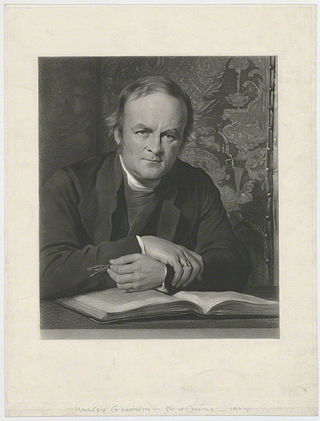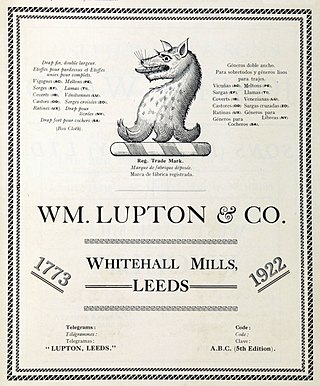
Trinity College is a constituent college of the University of Cambridge. Founded in 1546 by King Henry VIII, Trinity is one of the largest Cambridge colleges, with the largest financial endowment of any college at either Cambridge or Oxford. Trinity has some of the most distinctive architecture in Cambridge with its Great Court said to be the largest enclosed courtyard in Europe. Academically, Trinity performs exceptionally as measured by the Tompkins Table, coming top from 2011 to 2017. Trinity was the top-performing college for the 2020–21 undergraduate exams, obtaining the highest percentage of good honours.

Charles Stewart Rolls was a British motoring and aviation pioneer. With Henry Royce, he co-founded the Rolls-Royce car manufacturing firm. He was the first Briton to be killed in an aeronautical accident with a powered aircraft, when the tail of his Wright Flyer broke off during a flying display in Bournemouth. He was aged 32.

Matthew Paris, also known as Matthew of Paris, was an English Benedictine monk, chronicler, artist in illuminated manuscripts, and cartographer who was based at St Albans Abbey in Hertfordshire, he authored a number of historical works, many of which he scribed and illuminated himself, typically in drawings partly coloured with watercolour washes, sometimes called "tinted drawings". Some were written in Latin, others in Anglo-Norman or French verse. He is sometimes confused with the nonexistent Matthew of Westminster.
Roger of Wendover, probably a native of Wendover in Buckinghamshire, was an English chronicler of the 13th century.

Peter Paul Dobrée was a British classical scholar and critic.

Richard Porson was an English classical scholar. He was the discoverer of Porson's Law. The Greek typeface Porson was based on his handwriting.

William Stubbs was an English historian and Anglican bishop. He was Regius Professor of Modern History at the University of Oxford between 1866 and 1884. He was Bishop of Chester from 1884 to 1889 and Bishop of Oxford from 1889 to 1901.

The Flores Historiarum is the name of two different Latin chronicles by medieval English historians that were created in the 13th century, associated originally with the Abbey of St Albans.

The Ascension Parish Burial Ground, formerly known as the burial ground for the parish of St Giles and St Peter's, is a cemetery off Huntingdon Road in Cambridge, England. Many notable University of Cambridge academics are buried there, including three Nobel Prize winners.
Thomas Wykes, English chronicler, was a canon regular of Oseney Abbey, near Oxford.

Edward Henry Bickersteth was a bishop in the Church of England and he held the office of Bishop of Exeter between 1885 and 1900.

The Chronicles and Memorials of Great Britain and Ireland during the Middle Ages, widely known as the Rolls Series, is a major collection of British and Irish historical materials and primary sources published as 99 works in 253 volumes between 1858 and 1911. Almost all the great medieval English chronicles were included: most existing editions, published by scholars of the 17th and 18th centuries, were considered to be unsatisfactory. The scope was also extended to include legendary, folklore and hagiographical materials, and archival records and legal tracts. The series was government-funded, and takes its unofficial name from the fact that its volumes were published "by the authority of Her Majesty's Treasury, under the direction of the Master of the Rolls", who was the official custodian of the records of the Court of Chancery and other courts, and nominal head of the Public Record Office.

John Willis Clark, sometimes J. W. Clark, was an English academic and antiquarian.

Harvey Goodwin was an English academic and Anglican clergyman, Bishop of Carlisle from 1869 until his death.

Bertram Luard-Selby was an English composer and cathedral organist. As an organist, he served in Salisbury Cathedral and Rochester Cathedral. As a composer, he wrote prolifically for the church, the concert-hall and the theatre.

The Lupton family in Yorkshire achieved prominence in ecclesiastical and academic circles in England in the Tudor era through the fame of Roger Lupton, provost of Eton College and chaplain to Henry VII and Henry VIII. By the Georgian era, the family was established as merchants and ministers in Leeds. Described in the city's archives as "landed gentry, a political and business dynasty", they had become successful woollen cloth merchants and manufacturers who flourished during the Industrial Revolution and traded throughout northern Europe, the Americas and Australia.
Charles Henry Hartshorne was an English cleric and antiquary.
Francis Newton was an English clergyman who served as Dean of the Winchester Cathedral from 1565 until his death in 1572.
John Luard (1790–1875) was a British Army officer and author of History of the Dress of the British Soldier

Isaac Newton Wallop, 5th Earl of Portsmouth DL JP(11 January 1825 – 4 October 1891) was a British Peer and the son of Newton Fellowes, 4th Earl of Portsmouth and Lady Catharine Fortescue.














